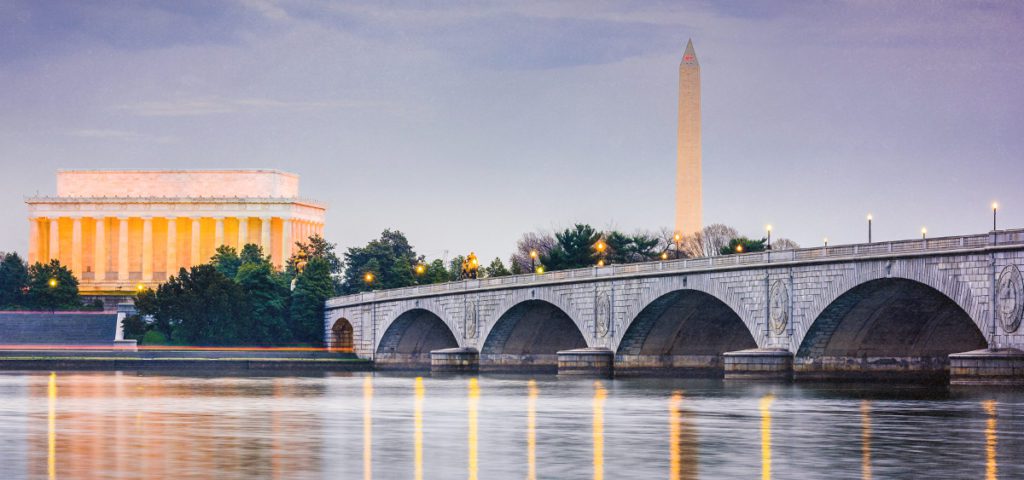Washington D.C. Councilmembers are set to vote on an emergency bill today eliminating the need for a doctor’s note to purchase medical cannabis by allowing individuals to ‘self-certify’ that they use cannabis for medical purposes.
D.C. Council To Vote On ‘Self-Certification’ For Medical Cannabis Patients

Full story continued below.
Advertisement
This article was written by Gaspard Le Dem (@GLD_Live on Twitter) and originally published by Outlaw Report.
The Washington D.C. Council is slated to vote on an emergency bill this Tuesday that would allow adults to register for the District’s medical cannabis program simply by “self-certifying” they use cannabis for medical purposes.
The measure, introduced by Councilmembers Mary Cheh (Ward 3) and Kenyan McDuffie (Ward 5), would eliminate the need for a doctor’s note to become a medical cannabis patient. If passed, adults 21 and older could theoretically walk into any of D.C.’s seven licensed dispensaries, sign a piece of paper, and purchase cannabis on the same day.
In April, the council narrowly turned down a similar proposal by Chairman Phil Mendelson because it contained provisions to crack down on cannabis “gifting” businesses –– storefronts and delivery services that use a loophole in local law to sell cannabis without a license.
Since last fall, local cannabis advocates and industry groups have fought back several attempts by Mendelson to pass legislation that would ramp up enforcement against unlicensed cannabis businesses. Groups like the I-71 Committee and Generational Equity Movement have rallied around the message that a crackdown on the gray market – whether through civil fines or criminal penalties – would take a disproportionate toll on the many Black D.C. residents who own and work at “gifting” shops.
Now, it appears their efforts have paid off: The council’s latest cannabis bill does away with the unpopular enforcement provisions, preserving only the self-certification part of the bill.
“Unlike the prior legislation, this bill does not include any enforcement provisions, and therefore will not have a direct effect on the gray market businesses or their employees beyond perhaps increasing competition for services,” says a June 23 letter from Cheh and McDuffie requesting a vote on the bill.
At a press briefing on Monday morning, Mendelson said he expects the bill to pass, describing it as “another effort at trying to help the medical cannabis industry.”
Though the bill drops any enforcement provisions, Mendelson reiterated his desire to rein in unlicensed cannabis businesses. “If we don’t get a handle on these pop-ups, what we’re going to see is the medical side […] will continue to see a loss of its customers,” he said.
The chairman, who recently won his re-election bid, has recently been on a mission to shore up D.C.’s medical cannabis industry, which he claims is struggling due to unfair competition from unlicensed cannabis shops that face fewer regulations and don’t pay special sales taxes on cannabis sales. Mendelson has already gotten several bills passed that aimed to give medical cannabis operators a boost, including one that lifted restrictions on dispensaries and cultivators and another that created a 4/20 tax holiday for the industry.
But the “self-certification” bill now before the council would likely have a much greater impact on licensed cannabis businesses by removing the burdensome and expensive requirement of obtaining a doctor’s recommendation for patients. That could convince cannabis users who favor the gray market to switch over to licensed dispensaries, though the cheaper prices of unregulated products would remain a deterrent.
Cheh and McDuffie’s letter says the bill would put medical dispensaries “on more even footing” with gray-market businesses when it comes to patient access.
“Permitting patients to self-certify now will provide a critical stopgap measure to help legal marijuana dispensaries retain and even win back patients,” the letter says.
It also says diverting customers away from gifting shops will lead to “better health outcomes” for patients because gray market products provide “no assurance that the marijuana has been tested or adequately labeled.” But as The Outlaw Report often notes, the District’s medical cannabis program still doesn’t have an official testing lab, and some patients have been harmed by products purchased at licensed dispensaries.
In essence, allowing patients to self-certify would transform D.C.’s medical cannabis program into a de facto recreational one, and could set off a showdown with Congress, which has for years blocked District officials from launching a regulated market for adult-use cannabis. However, as an emergency measure, it would expire 90 days after going into effect.
The council is also considering a more permanent medical cannabis bill by D.C. Mayor Muriel Bowser that includes a provision to authorize patient self-certification. That measure, which has yet to receive a vote, would require direct ratification from Congress.
Get daily news insights in your inbox. Subscribe
End